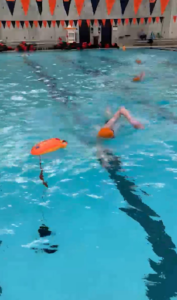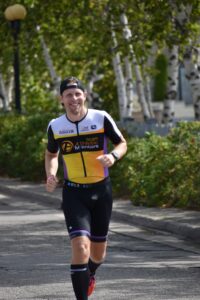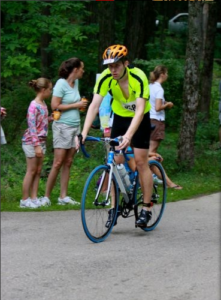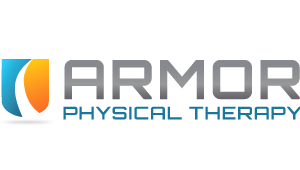By Sean Siems
There are many classes and opportunities given by Athletic Mentors to help better their athletes and make them complete their goals. Out of these many classes and opportunities lies the open water swim class. This class is coached by Athletic Mentors coaches and offers athletes an opportunity to help heighten their open water swimming ability for triathlons or relays. The curriculum isolates certain spots that need work to be more efficient when swimming. This class I highly recommend to people that are looking to start swimming or even those who are already great swimmers.
The Open Water Swim Class, located at Kalamazoo College, right off of West Main on Catherine Street. The class takes place in one of the nicest pools in the city of Kalamazoo. It has many lanes and room for people who may be more advanced or just starting out. The natatorium also has a great ambiance as the pool area is very open with windows that have the sun shining in and high ceilings which, for me, make me feel less cramped when swimming. The pool also has a very nice temperature which isn’t too hot where you are sweating to death, but also not too cold where you can’t get warm swimming in it.
Now that we have talked about the location, let’s talk about the coaches that run the whole thing. The first coach is Dawn Hinz. Dawn is an Ironman finisher having completed Ironman Cozumel in Mexico. She is also highly skilled in all disciplines in a triathlon but especially the swim. She is an accomplished swimmer having swam at a high level and knows what proper technique and form looks like to help you get the most out of swimming. Next is Chelsea Cekola. Chelsea , much like Dawn, is very disciplined in the swim, bike, and run. She has competed in many races and knows what it takes to get better and what steps to take to get there. In addition, there is Cheryl. Cheryl is a very successful athlete and is a huge organizer behind this class and lends a helping hand to those that are just starting out and need more assistance. Finally there is Coach Tom Belco. Tom is a phenomenal coach having over 40 years worth of swim coaching experience. He is also very renowned for being YMCA coach of the year and being named Regional coach of the year by MHSAA.
Now, let’s talk about the different drills and exercises that you will be doing. The class involves a lot of kicking because as Coach Belco said, “The Kick is only 10% of the stroke, but it is the top 10%.” We also work a lot with drills which help with your breathing, form, and stroke. Some of these drills include breath control which teaches you to breath every three strokes. Another drill that is used a lot is six kicks to every one pull, which teaches you to keep yourself relaxed and straight and not sink into the water. There is also a focus on streamlining. Streamlining is the fastest part of a swim since you are underwater and are straight like a pencil with your arms straight up together(see photo). When doing streamline you must keep as straight as possible so you can move quickly through the water so you can be ahead of the competition.
This class is a very beneficial opportunity to take your swimming to the next level. It is spread into two classes, beginner and advanced – for those looking for more of a challenge. The location of the pool and the people that organize it are very nice and very supportive. What these coaches bring to the table and offer is something I wouldn’t pass up as a swimmer myself. I believe that anyone who is thinking about trying this out should most definitely take a shot at it.



















